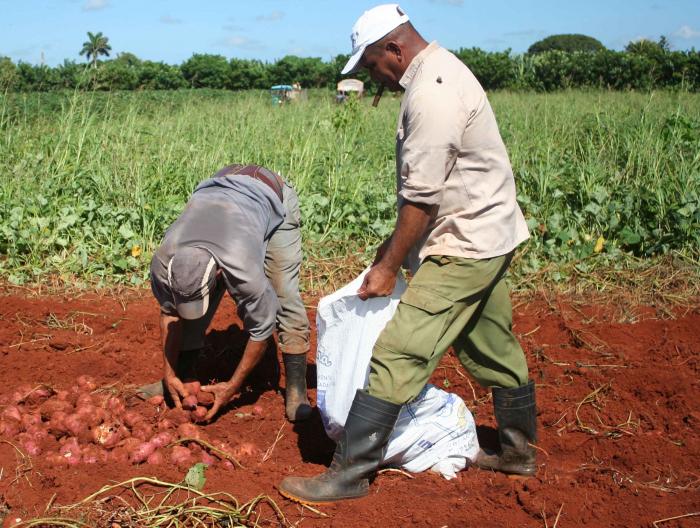According to José Ramón Monteagudo, a member of the Secretariat of the Central Committee of the political organization, the ANAP can fulfill this mandate, due to its importance in the different productive programs.
Increasing yields in a sustained manner should be its main objective, he said at the close of the XII Ordinary Plenary Session of the National Committee of the ANAP.
Given the deficit of foreign currency, it is necessary to increase production that constitutes exportable items, such as tobacco, coffee, cocoa, honey and charcoal, said the head of the Agro-Food Department of the Central Committee of the Party.
Likewise, he urged to increase the harvests of “rice, beans, corn and other products” to replace imports and, in addition, “make a great effort in the recovery of livestock.”
Work must be done to increase the planting of banana, cassava, sweet potato, malanga, grains, fruit trees and short-cycle crops, he said.
He stressed that it is necessary to stop the decline in sugarcane production and indicated “paying maximum attention” to the 2024-25 harvest.
According to Monteagudo, it is urgent to achieve “greater discipline in the use and exploitation of land and control of livestock, vigorously confronting illegalities.”
He said that greater demands are required in compliance with technical-economic plans, “since the main mission of this sector is to produce for the people.”
He also said that “non-compliance with milk and meat production should not be repeated next year, which has been manifested mainly due to a lack of demand and control.”
This sector plays an important role in fulfilling the goal of planting one caballería of cassava and plantain for every thousand inhabitants, for which it is essential to advance in the recovery of the plantations affected by hurricanes (Oscar and Rafael), he said.
For the political leader, farmers and ranchers are willing to face the recovery process with firm will and optimism.
However, political-ideological work must be improved within the producers, with the aim of imbuing them, as Cuban President Miguel Díaz-Canel said, with the need to take on the challenge of “producing the food we need.”
There are producers with outstanding results, with the use of science and innovation, agroecology, the use of bioproducts and animal attraction, which must be generalized with greater agility, he suggested.
The plenary session, held at the Niceto Pérez Comprehensive Center in Güira de Melena, a municipality in the western province of Artemisa, was also attended by Deputy Prime Minister Jorge Luis Tapia and other party and government authorities.
ef/jcm/raj









